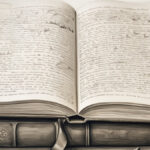
How Do You Find Meaning and Purpose Outside LDS Church or Religion?
October 13, 2024
History Overview Site Map
November 24, 2024Self-Reflection Questions on Epistemology
The following are a list of questions and thoughts related to the reliability of the methods I’d used up to that point in determining my religious beliefs were true. I catalogued these around the same time that I was diving deep into church history.
1. Are feelings a reliable source of truth?
What is the difference between me reading about the Book of Mormon and feeling warmth in my chest and concluding the church is true and the person I met on my mission who talked about praying that the Bible was true and had a warm feeling inside and concluded the Catholic church was true or the Daoist who said that going to take part in the temples with their grandmother made them feel warm and good inside and concluded that Daoism is the truth. What makes my experience and conclusion different? I can only insist that I am right and they were wrong, which I’m sure they would assert as well. To an objective observer our stories would be indistinguishable.
2. Are feelings the best way to know if something is true?
If feelings are the necessary source of truth, why would I need to be taught that at all? If feelings trump everything else in determining truth it seemed reasonable that I would have just naturally felt good for every true thing, even religious truth. Why would I need to teach others this on my mission? Why would a God so concerned about me coming back home not even give me an inborn knowledge of how to find truth? Why was there so much reliance on preachers and fallible humans to even get the most fundamental pieces together? And why even have scientific methods if that the spirit was how truth was found? Shouldn’t righteous people have discovered many scientific truths already by following their feelings? If feelings are better than outcomes of experiments and science, shouldn’t we see theories being postulated by holy men to pray about and then tell the world how they felt inside as the outcome? Why does the scientific method seem to be so much more effective? It seemed like no matter the outcome, feelings could only be trusted if it confirms what the church said.
I don’t trust feelings as the all-knowing source with other areas of life, why is religion special? If I went to a doctor and he told me his feelings directed him to treat my ailment in direct opposition to accepted medical procedure, I would be looking for a second opinion, pronto. Or if I was on trial in a courtroom, but there was evidence showing my innocence, I’d hope the jury wouldn’t side with a prosecutor who said that the evidence should be ignored because he just feels in his heart I’m guilty. Of course, in the church that seems like what they were telling me to do. Throw out all evidence and reason and just trust the prophet. Don’t look beyond him. Don’t read history or “anti-Mormon”. Why would the church care if it has the truth?
3. Do beliefs that give comfort make them true?
Well there are contradictory teachings from the various religions, but each is getting comfort out of the teachings, so I don’t think so.
4. What makes the Book of Mormon more believable than all those other holy books (Koran, I Ching, Tipitaka, Talmud, etc.)?
Beyond saying that I feel like it is true to me, which is the same claim that they make, I don’t know that I have anything. There doesn’t seem to be a superiority of archaeological evidence or other items that I could show an unbiased outside observer. There is good teachings, but I don’t know that I can say that makes it more believable.
5. How did I conclude that anything written in the Book of Mormon is a reliable source of truth and not a book of claims?
I don’t know that I have anything beyond someone told me it was completely true and then I prayed and felt good inside.
6. How could a person test that prayer actually works?
My initial thought is to set up an experiment where a definite, but unknown outcome is prayed over and then based upon the inspiration back writing the expected result. Then the actual result is compared back to what was expected from the prayer.
7. Can doubt ever be beneficial?
If I’m not following truth I want to know.
8. Does one need a God belief or specific religion to be good?
No, it’s not a requirement. I’ve known too many atheist and myriad or non-religious people to know that goodness doesn’t come from a list of rules from a religion.
9. If my belief about God or church is mistaken, how would I discover it?
Study? I don’t think sitting in church alone would provide this answer.
10. Is holding this belief more important to me than the belief being true?
It would take a major reconstruction of why I was at church. I’m a member because this is the one true church. If that wasn’t true I don’t know that the utility of church would be important enough to make it worth going. I would also have to sit while everyone talks about the church being completely true, while not believing the main narrative of the church.
11. If ten minutes from now it was proved without doubt that Mormonism was a false religion, what would change?
In the outside world, probably very little. For the family a lot of internal emotional hardship that would take time to get over.
12. If a Muslim/Hindu/Daoist is mistaken about their revelation/holy book/supernatural experience/faith, how can they discover their mistake?
Wouldn’t any methods I come up with be just as equally viable to ask about Mormonism?
13. How can I avoid mistakes in critical thinking and religion?
With personal investment, such as money, efforts, friendships, opinions, and personal sacrifices for a person or cause and they will instinctively try to justify those sacrifices. The bigger the sacrifice, generally the greater the need to justify it. This can fall into the sunk cost fallacy as well, where too much has been given or sacrificed, so instead of rationally or reasonably addressing or viewing evidence it is ignored and avoided because too much has already been invested, all while ignoring that further sacrifice will be needed or that it still does not make something true or correct. Faced with potential deception in my own group, am I willing to listen or understand the opposing arguments? Does rationally listening and understanding the opposing arguments mean I am less faithful? If so, why is faith tied with ignorance?
14. If all I can rely on is faith, is that a virtue?
With other religions reliance on “faith” alone was frowned on. I was disheartened when a Daoist said they believed because of faith on my mission. It is only within Mormonism that I seem to think it’s a virtue. Unlike faith with family or friends where trust is earned, it seems religious faith is just expected and it’s a sin or unvirtuous not to have it or apply it. By definition if direct evidence is offered then faith is erased. “…and he had faith no longer, for he knew, nothing doubting.” (Ether 3:19). Faith by it’s nature is believing in something with little to no evidence, usually reliant on a feeling. But as the Youtuber TheraminTrees says, unlike faith in others that can be questioned when something is done to contradict that opinion, religious faith often demands contrary evidence be ignored. All contradictory evidence is dismissed as invalid, usually with some brush off that if someone took the time to investigate it would all be fine. But false religious faith can be a system for protecting lies. If the object of faith is false, the religion requires that members believe despite an absence of expected evidence or despite the presence of conflicting evidence. So how does one detect lies if one is expected to keep this faith as a virtue? The absence of expected evidence or the presence of conflicting evidence is essentially the main path to detecting lies or falsehoods, but these paths are not allowed by faith it seems. Discussions of conflicting evidence or absence of expected evidence is discouraged, dismissed, and shut down at church, with the questioner told to rely on faith. To rely on faith, if the object of faith is a lie or untrue, would mean to never be able to discover the falsehood.


